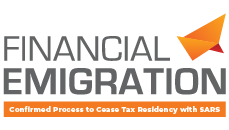What is CRS and why should I care?
Jurisdictions that have agreed to and signed the recently implemented “Common Reporting Standard” (CRS) are obligated to obtain pertinent financial information from their financial institutions and automatically exchange this with other jurisdictions on an annual basis. Put simply, if you are living in a jurisdiction that has to comply with CRS, then your financial information will be shared with SARS.
In a press release on 5 July 2018, the Organisation for Economic Co-operation and Development (OECD) announced a new set of bilateral exchange relationships established under the Common Reporting Standard Multilateral Competent Authority Agreement (CRS MCAA).
There are now more than 3200 bilateral relationships in place from over 100 jurisdictions in the global network for the automatic exchange of offshore account information. The exchange of information has already started taking place in certain jurisdictions and the next exchange is set to take place during September 2018.
Click here for a list of the countries signed up for CRS.
How does this affect me?
To put it bluntly, the South African Reserve Bank, SARS and the globally agreed CRS want to know your movements. CRS ensures that you will be found wherever you may be in the world. Due to the massive tax deficit experienced, SARS wants no stone unturned and global banking institutions will soon provide them with information on the income going into your accounts.
Many expats have adopted the “We’ll cross that bridge when we get there” attitude. However, SARS have taken a zero-tolerance stance towards non-compliance and if your tax affairs are not up to date and fully compliant, SARS will hand you over to the NPA – which can lead to you having a criminal record. This is already evident in their recent campaign to prosecute prominent taxpayers who have failed to submit their tax returns.
What should I do?
Keeping your head in the sand is no longer an option. With CRS gaining momentum and the new expat tax law amendment taking effect in 2020, it is important to keep yourself well informed of the options available to you to avoid being stung by the taxman. Should your permanent intention be to remain abroad, then financial emigration provides a final risk management solution for expatriates to not have to declare their world-wide income and capital gains to SARS. This also provides a solution to CRS and Exchange Control restrictions.
However, should you wish to return to South Africa, it is best that you seek professional advice on how to remain compliant while you complete your working obligations abroad. It is important to note that submission of returns also gives taxpayers access to the Voluntary Disclosure Programme (VDP), which affords acquittal from far more serious criminal sanctions should there be any skeletons in your closet. An ounce of prevention is worth a pound of cure.
Author:

Dylan Price
Advisor



